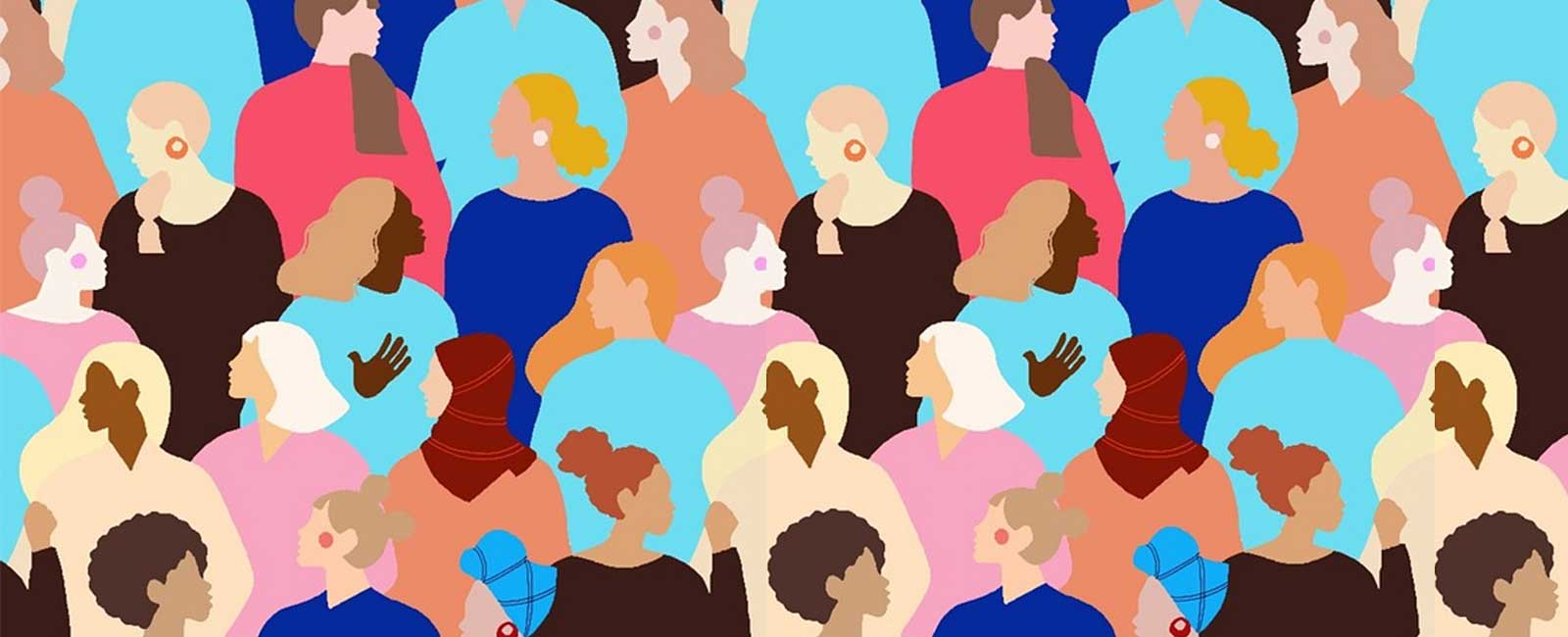Queens of crafts: Celebrating women who upskilled themselves to self-reliance
“I grew up believing women are weak and they can’t do what a man can,” said Razia Ahmeduddin, 43, as she made clay pots at the Rukhsaana Vocational Centre located in Agra Taj Colony, Lyari

When Razia lost her husband, the sole breadwinner of their family of four, all she could think about was how to feed, clothe, and shelter her children. She was 36 then.
“That’s when I realised the importance of financial independence of women,” she said when Geo.tv met her at the Rukhsaana Vocational Centre, located in Lyari's Agra Taj Colony, which has trained several women like Razia over the years since its inception in 2017.
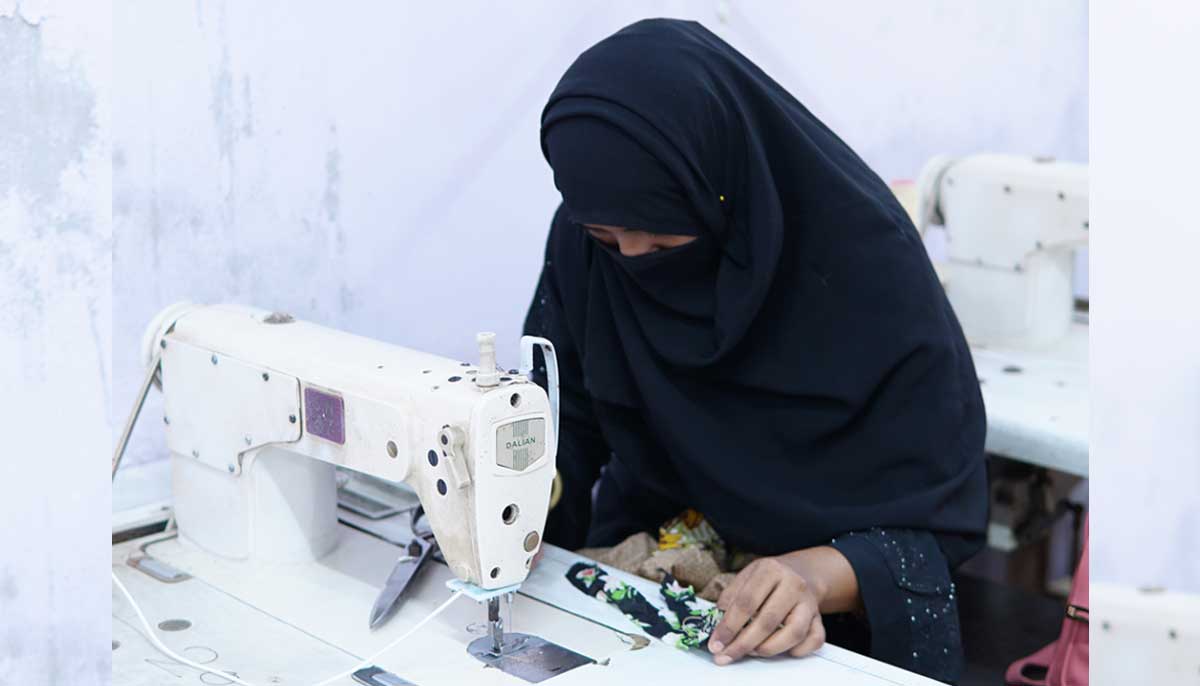
Women are largely considered weaker in our society. But the discourse around women's empowerment has been going on for some years, while the notion that the ‘progress of a society is directly proportional to the status of women in it’ is also well-established.
The role of vocational training centres, in this regard, has been crucial with many offering women the opportunity to develop different skills to become self-reliant financially.
This International Women’s Day, Geo.tv explores the impact of Karachi’s vocational centres on the women of the working class, as they provide them with platforms to grow on their own by teaching them to catch the fish, instead of handing them some.
Finding hope in despair
Razia, a pottery student at RVC, also runs a shop located in Gulshan-e-Iqbal, next to Children’s Hospital Karachi. Sharing her inspiring story with Geo.tv, Razia spoke about building herself up for the sake of her children.
“When responsibilities hit you, you realise why women in the present era are grinding themselves to build a career. When my husband passed away, I was a mother of three kids and had never stepped out of my house before. My youngest son was three years old and I stood there staring at my husband’s body with hopes of blowing life into it,” she said, as she wiped tears off her face.
Razia said she came across the vocational centre last year and was able to find the means to earn within five months.
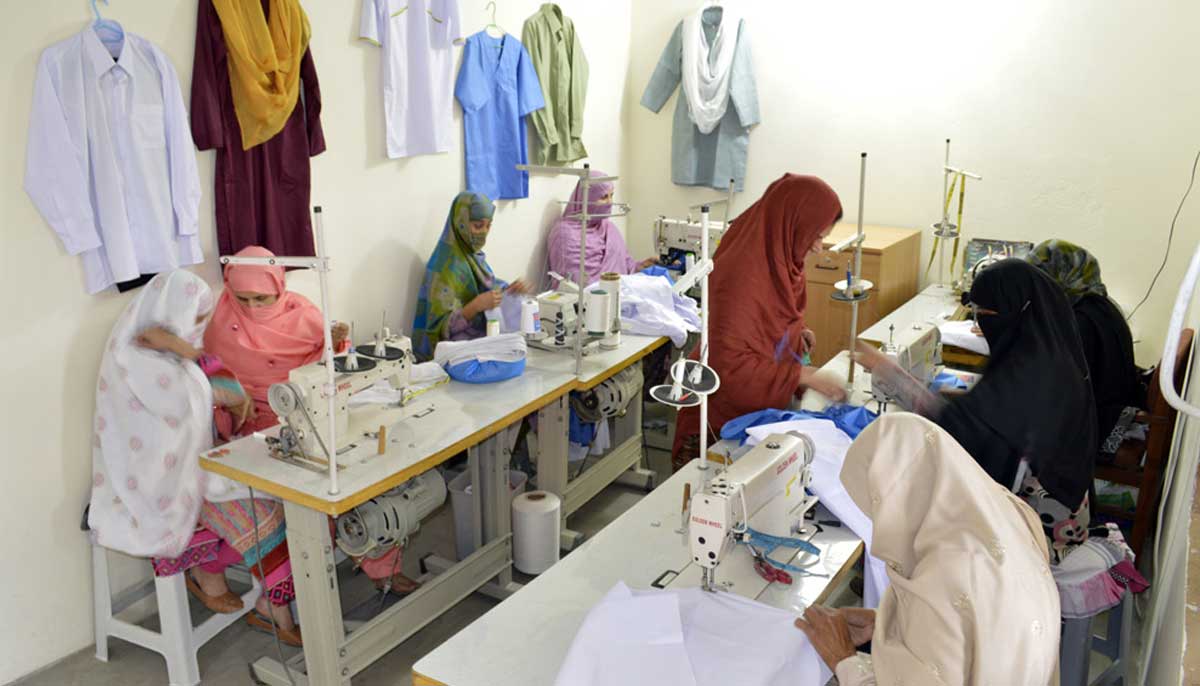
“I have so far completed four courses and pottery is my passion. I make pots with different designs and I love to experiment with my work. I have some standard designs but now and then, I keep changing them,” Razia explained as she continued working on a pot she was making.
As Geo.tv delved into finding vocational training facilities in the city, Rukhsaana Vocational Centre was one such space. The centre, functioning inside a small space, can accommodate 50 people at once and operates in shifts. It offers handy skills like pottery, sewing, fashion designing, basic textile designing, mehndi, and elaborated beautician courses.
The administration charges a fee as per an applicant’s financial means. If for some reason, the applicant is unable to pay the fee, they have to sign a contract offering their services to the institute for two months following completion of their desired course.
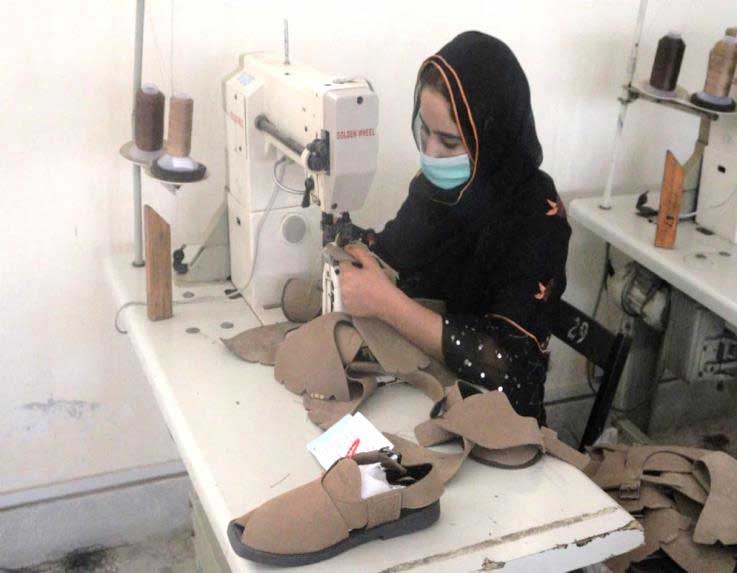
“My sole purpose to build this place was to help women in need and instill the idea of financial independence within them. It is so important that we teach our daughters about how they need to take the control of their lives in their hands, instead of handing them over to others,” Mrs Bilal Rehmat, the founder of Rukhsaana Vocational Centre, told Geo.tv.
As a woman, who was privileged enough to get her hands on education, Mrs Bilal aimed to help those who weren’t as fortunate as her.
“It has been two years since I have been running this place and the empowerment I get to witness on a daily basis keeps me going,” she said while sharing the purpose behind her work.
'My work is everything I am'
In Lyari’s Chakiwara area, another vocational training centre Hunar Ghar is being operated by Mehr Ghar — a safe community space in the once conflict-ridden neighbourhood. It provides Baloch women with a platform offering them skills to start working right after their courses are complete. One of its students Zareena, who stitches clothes for boutiques, said the platform helped her learn new skills and apply them when needed.
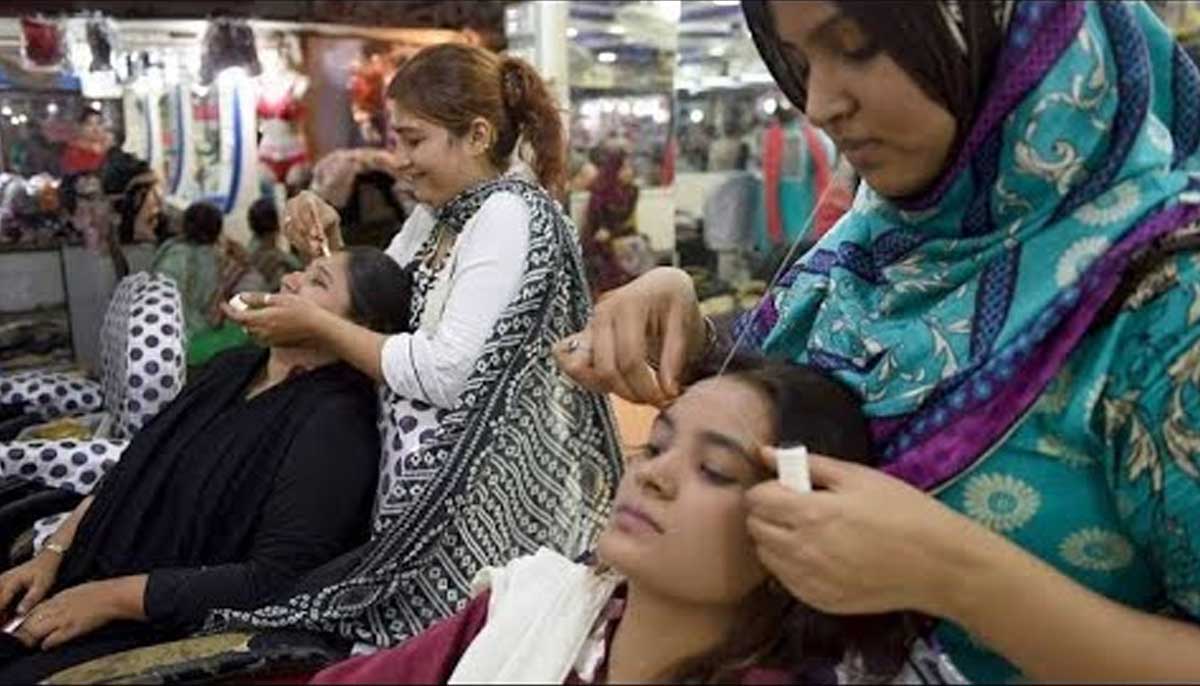
“I am fortunate to have come across this place where I can stand on firm ground and build myself up. As a woman, I have always felt the need to be heard and seen through my work and Mehr Ghar has given me the space to be heard,” she said, declaring “my work is everything I am.”
The 25-year-old dropped out of school in eighth grade after her family couldn’t afford to pay her fee. The seamstress worked as a domestic worker for five years and came across Mehr Ghar while looking for training centres to learn a skill.
'Safe space for women'
In the bustling city’s Hussainabad area, known for its variety of street food, is a training institute built by the World Memon Foundation Community Centre Trust (WMFCCT), popularly referred to as the Memon Foundation. The institute is surrounded by several small shops selling art, beauty, cooking, and decoration supplies. As you enter its building, you will find an enchanting display of art pieces made by fine art students on your right.
What makes this place special is the fact that its entire staff — from its teaching faculty to the finance department and vendors running its canteens within the campus — are women. Its female students, on the other hand, opt to learn through its more than 200 certificate courses in grooming, women's well-being, languages, information technology, fine arts, cooking, baking, and other skills — all costing no more than Rs1,000.
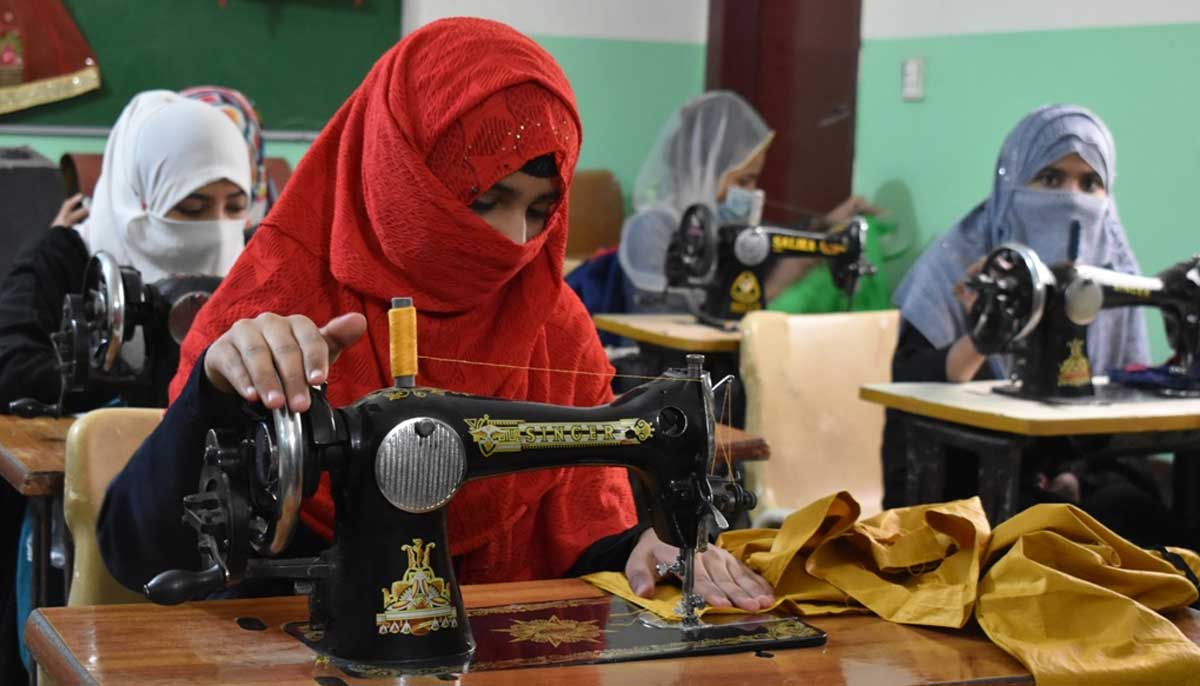
“I have always been interested in everything a woman does for her household. I was five when I baked my first cake for my sister’s birthday. This was when I discovered my passion,” Nosheen Ameer Ali said with a wide smile while whisking the batter of a cake in progress.
Nosheen, who is in her mid-50s, said she has done several diploma courses in baking — three from the WMFCCT and the rest from other centres — and now teaches students here.
"This is my fifth year at WMFCCT. I have trained hundreds of female students who are now running their bakeries. One of the major reasons I chose to teach here is the environment of solidarity. Women here always look for opportunities to uplift each other,” she said, adding that all women at the institute have something to say, teach, and learn.
“This is a safe space for women to breathe and get hands-on training for whatever they want to learn,” Nosheen added.
The student-turned-trainer commutes for over two hours twice a week to arrive at the institute for teaching and learning.
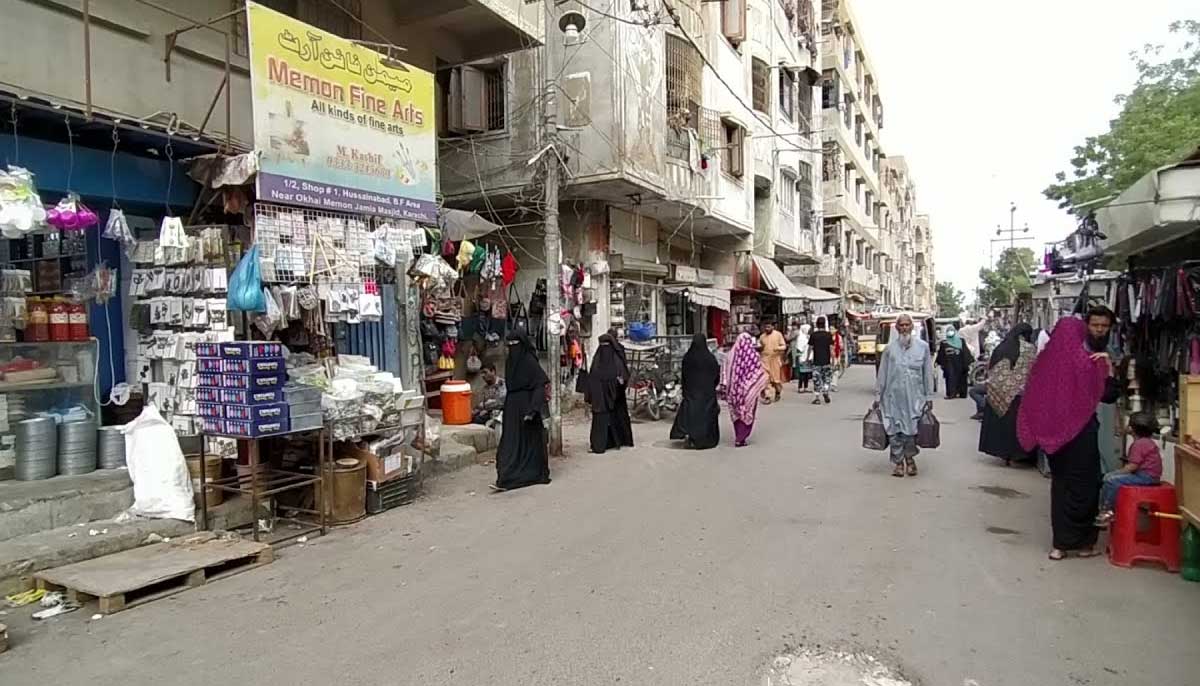
Meanwhile, Rabbia — one of the students in WMFCCT’s personal grooming course — also shares the skills she has acquired in the last three years.
“I have done more than 12 courses within three years at this institute. It feels like home, as our teachers make sure to teach us everything from the scratch. This is the essence of women empowerment we need as a society,” she said.
Through some of the stories of these resilient women, Geo.tv discovered the essence Rabbia was talking about. Along with Razia, Zareena, Rabbia and Nosheen, every woman has an inspirational tale to share. Given the encouraging accounts of these women and seeing their craft and skills, one realises that to raise a generation of independent individuals, all we need to do is empower women and see them working wonders.
Aleezeh Fatimah is a staffer at Geo.tv
— Banner and thumbnail image by Pixabay



